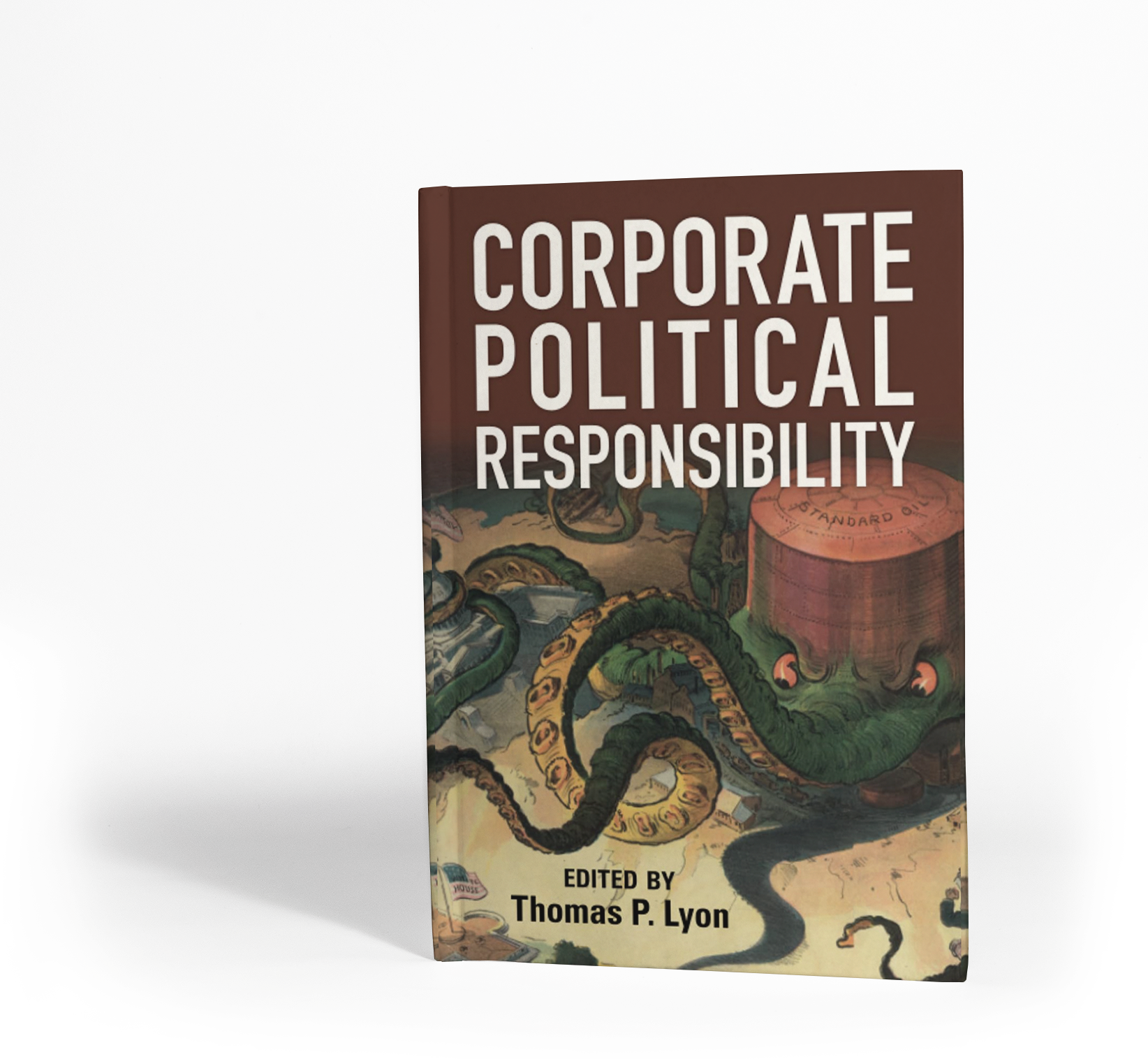Corporate Political Responsibility
A Non-partisan, Principled Approach
Our goal is to make it easier for companies to take a principled, responsible approach to their political influences, as a critical lever for:
- Reducing enterprise risk and enabling long-term strategy
- Making markets more sustainable
- Strengthening trust in civic institutions
- Establishing corporate political responsibility (CPR) as a shared norm
We support the Erb Institute’s mission of creating a sustainable world through the power of business by:
- Supporting executive champions as they operationalize CPR in their firms
- Co-creating non-partisan CPR principles and practical management tools
- Showcasing CPR research, thought leadership, solutions and case studies
- Engaging students and a diverse ecosystem of stakeholders to address CPR challenges
Featured Resource
Explore the new CPR Decision Tool & Executive Conversation Guide!
A Tool for Making High-stakes Decisions in a Polarized World
This guide helps company leaders make values-aligned choices by walking through four steps in drafting decisions and clarifying rationale:
- What is the challenge?
- Should we engage in this area and why?
- How can we engage responsibly?
- How will we communicate and follow-up?
The Erb Principles for CPR:
A Framework for CPR in Action
The Erb Principles for Corporate Political Responsibility provide a non-partisan, practical thought process to help companies respond to new questions and new pressures related to their political influences – from employees, investors, customers and the public.
JOIN THE CONVERSATION!
Sign up to learn about CPR-related events, tools, readings, opportunities for input and positive action.

“In these polarized times, business has an incredibly important role to play in building public confidence in our constitutional democracy and its institutions. The key is not to take one side or the other, but the third side, the side of the whole country and its future. That is the aim of the CPRT and the Erb Principles.”
William Ury
Co-founder, Harvard Program on Negotiation, and Co-author, Getting to YES
Learn More About Corporate Political Responsibility
CPRT in the News
Featured
More News

Read the New Book
“Corporate Political Responsibility”
Erb Institute Faculty Director Tom Lyon’s recent book seeks to create a new norm for responsible political behavior by corporations.

Elizabeth Doty
CPR Taskforce Director
Meet Elizabeth
Since 2012, Elizabeth has focused on business’ role in addressing larger societal challenges and strengthening trust in civic institutions. As a Lab Fellow at the Edmond Safra Center for Ethics at Harvard she led research on the challenges of “commitment drift” in large organizations. Her book, “The Compromise Trap,” was published in the aftermath of the 2008 Financial Crisis. Based on that work, she was recognized as a Top Thought Leader in Trust, and has designed and led executive-level programs for Fortune 500 companies, Stanford Graduate School of Business, Presidio Graduate School and the US Department of Defense. Elizabeth earned her MBA from Harvard Business School in 1991 and serves on the advisory boards of several non-partisan initiatives working to reduce destructive political conflict and promote US civic renewal.
Read more from Elizabeth: The Importance of Corporate Political Responsibility

Tom Lyon
Dow Chair of of Sustainable Science, Technology and Commerce
Meet Tom
Thomas P. Lyon holds the Dow Chair of Sustainable Science, Technology and Commerce at the University of Michigan, with appointments in both the Ross School of Business and the School of Environment and Sustainability. He is President of the Alliance for Research on Corporate Sustainability (ARCS), and Faculty Director of the Erb Institute for Sustainability in Business at the University of Michigan.
Professor Lyon is a leader in using economic analysis to understand corporate sustainability strategy and its interplay with public policy, NGOs, and consumer demands. His book Corporate Environmentalism and Public Policy was the first rigorous economic analysis of this important topic. His article “CSR Needs CPR: Corporate Sustainability and Politics” coined the term Corporate Political Responsibility. His latest book Corporate Political Responsibility seeks to create a new norm for responsible political behavior by corporations.
Read more from Tom: CSR Needs CPR: Corporate Sustainability and Politics; buy the book Corporate Political Responsibility

Melissa Zaksek
Erb Institute Acting Managing Director
Meet Melissa
Melissa Zaksek is Acting Managing Director of the Erb Institute at the University of Michigan. Building on nearly three decades of research, teaching, and business engagement, the Erb Institute is one of the world’s leading sources of knowledge and practice for business leadership in a rapidly changing world. The institute’s work includes graduate and undergraduate teaching; sustainability executive education; scholarly and applied research; and facilitation of industry roundtables, such as our groundbreaking Corporate Political Responsibility Taskforce and the CPR Principles.
Melissa works to advance the institute’s research agenda by building new partnerships with company and academic thought leaders and developing and implementing research initiatives that address business’s most pressing business sustainability challenges.
With a background in collaborative science, resource management and policy, and structured decision-making, Melissa is deeply committed to building and supporting collaborative efforts that promote environmental, social, and economic sustainability. Melissa has extensive experience engaging with diverse stakeholder groups, including scientists; federal, tribal, state, and municipal governments; conservation, stewardship, and industry organizations; and community groups.
